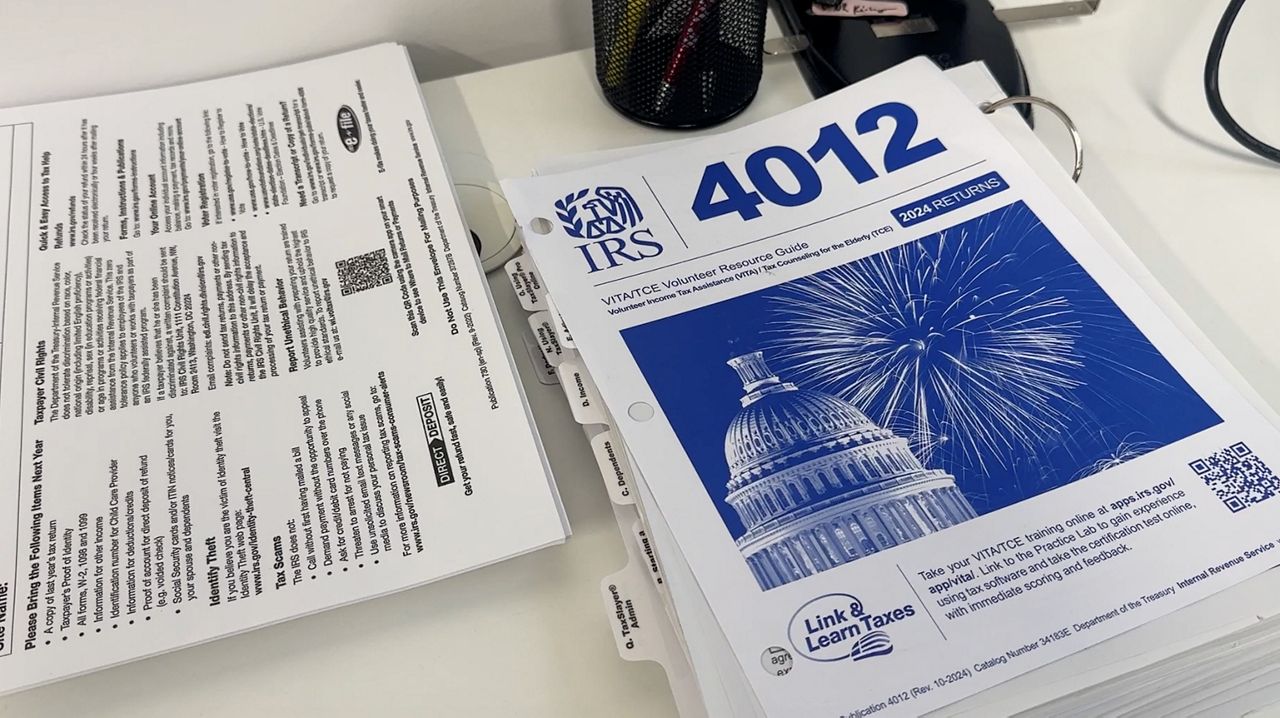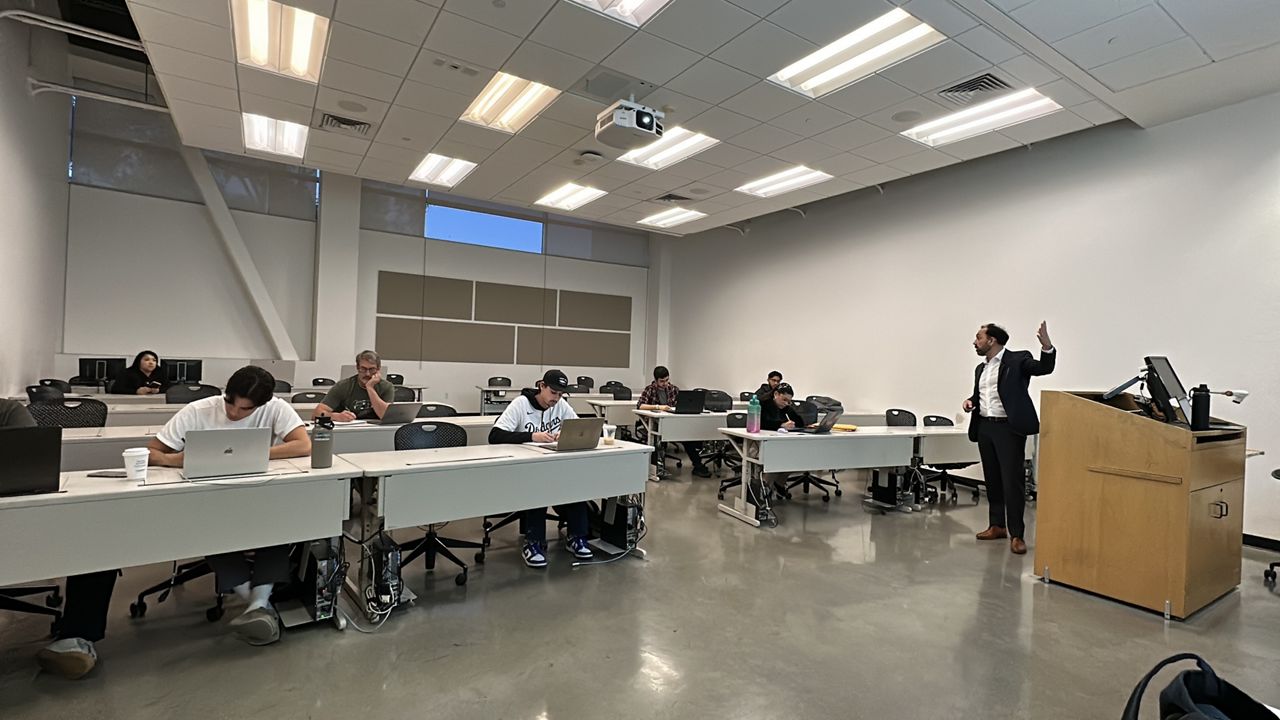EDITOR’S NOTE: LA County is facing a mounting budget crisis. Multimedia journalist Chace Beech spoke to a county civil engineer about the proposed budget cuts. Click the arrow above to watch the video.
LOS ANGELES — The county Board of Supervisors gave initial approval Tuesday to a $47.9 billion budget proposal for the 2025-26 fiscal year, with the recommended spending plan including 3% cuts to some departments and the elimination of 310 vacant positions, but no layoffs.
The recommended budget reflects efforts to "offset extraordinary budget pressures," according to a statement from the county, including more than $1 billion in costs related to the January wildfires. The county will also begin to feel the pain of a proposed $4 billion settlement of nearly 7,000 claims of sexual abuse against county workers, mainly at probation camps and halls.
What You Need To Know
- County CEO Fesia Davenport presented the budget proposal to the Board of Supervisors Tuesday
- Davenport said Monday that the county's future financial picture is also threatened by the possible loss of hundreds of millions of dollars in federal funding
- Wildfire recovery costs are expected impact the region over the coming years, possibly reaching as high as $250 billion
- Funding to homeless programs, youth development, parks and recreation, and other services would continue to remain unharmed
County CEO Fesia Davenport presented the budget proposal to the Board of Supervisors Tuesday, beginning the public process of reviewing, revising and adopting the spending plan.
Presenting the budget to members of the media on Monday, Davenport said the county's future financial picture is also threatened by the possible loss of hundreds of millions of dollars in federal funding.
"Our revenue outlook is challenging — to put it mildly," Davenport said. "The amount of new ongoing funding in this budget is at a five-year low."
With the change in presidential administration, at least 13% of the county's budget that comes through federal assistance, and billions in grants and funding, could be at risk, she said.
The state budget is also at a risk of losing federal funds, which could trickle down to impact the county.
"We are already seeing it happen," Davenport said, noting the recent federal proposal to rescind $45 million in Public Health funds.
"We are in uncharted territory with these simultaneous pressures on our budget," Davenport said in a statement. "Any of these alone would be daunting, but taken together these challenges — the wildfires, the AB 218 (sex abuse) settlement, the threat of deep cuts in federal funding — are cause for great concern."
Davenport stressed the abuse settlement is "by far the costliest in county history."
With more than 6,800 claims, the settlements are expected to be paid through a combination of county funds, budget cuts and borrowing over a number of years, if approved by the county Board of Supervisors.
Davenport said the impact of the payments could take a hit on the county budget through 2050-51.
Wildfire recovery costs are also expected impact the region over the coming years, possibly reaching as high as $250 billion. The county expects to recover at least some of its portion of those costs from the Federal Emergency Management Agency, Davenport said.
A large part of the budget is also affected by a 41% decline in home sales driven by higher interest rates, which directly put pressure on property tax revenue, she said.
In addition to eliminating 310 vacant positions, the budget proposal also includes $50 million in cuts that will be achieved by cutting supplies, delaying equipment purchases and reducing the scope of some county programs. Overall, the budget includes roughly $88.9 million in targeted cutbacks.
"The hope is that as we manage, very carefully. all of the pressures and we look at our revenues, and we do things like not incur new expenses — we don't put ourselves in a position where we have to implement layoffs," Davenport said.
County officials insisted that despite the cost-cutting, the spending proposal "is committed to sustaining the county's essential safety net responsibilities and to funding key priorities set by the Board of Supervisors."
Funding to homeless programs, youth development, parks and recreation, and other services would continue to remain unharmed.
Close to $12 million is allocated in the spending plan to ramp up Measure G efforts — a ballot measure passed in November 2024 to overhaul the County Charter.
The supervisors were generally supportive of the curtailments in the budget, given the various pressures on financial resources.
The board unanimously approved the proposed budget on Tuesday, advancing it to a series of public hearing that will be held in May ahead of final changes being adopted in June. The supplemental budget is expected to be adopted in September.
"Despite a constrained budget, we must continue to invest in programs that provide essential support, such as job opportunities for youth, legal representation for immigrants, and critical resources for those transitioning out of foster care," Solis said in a statement after the vote. "I remain committed to ensuring that these services remain accessible to all Angelenos who depend on them. Moreover, I will continue to advocate for sustainable funding for these programs to ensure they can support our communities in the long term."
Supervisor Kathryn Barger credited long-range budgeting and planning for putting the county in a position to manage the difficult financial times.
"Despite the fiscal pressures we face, I'm proud that we've established a rainy-day fund to help cushion the impact," Barger said. "I've long championed responsible, forward-thinking budgeting, and we're seeing the benefits of that prudent planning today."












